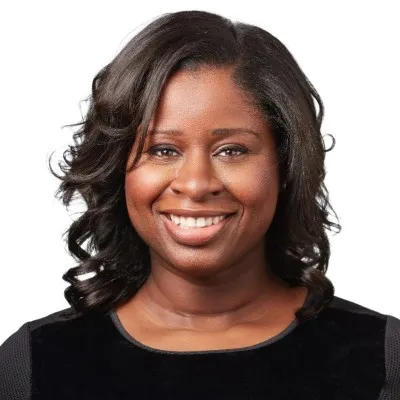Building Company Culture on Customer Relationships


As more and more businesses have added digital components to their existing systems, a customer relationship management (CRM) system has proven to be at the heart and center. This system ties everything together and enables integrations and automation to help processes run faster and smoother. While many of us use a CRM to run our business, it’s not often that we hear how a company that builds a CRM looks at its own customer relationships. We took this insight from a recent chat with Clint Oram, Co-Founder and Chief Strategy Officer of SugarCRM.
Non-Serial Entrepreneurship
When SugarCRM started back in 2004, Clint thought he was kicking off the Silicon Valley dream: build a startup, scale, sell, then wash, rinse, repeat. The number of businesses he built would measure his success, or so he thought. 20 years later, he’s still at Sugar because he found “true love.” He fell in love with the first company he built – with what it does, with the customers, with his team, with the partners. And it turns out that success is just as measurable when building one business well as in building many. That makes Clint a “non-serial” entrepreneur, something he proudly announces on his LinkedIn profile.
A CRM Living CRM Values
When you’re a company that builds and maintains a CRM, you’re going to be scrutinized as to how you treat your customers. Clint and his team lean into that, sometimes too much.
The first reason this happens is the culture at Sugar. It implants a passion and drive to make success happen for customers. That passion, without the proper boundaries, can lead to burnout.
The second reason is how Sugar approaches customer requests. “Almost to our own detriment, we’re focused on customer success,” Clint says. It turns out that there is such a thing as being too customer-centric, and that’s when you make unsustainable decisions to please customers.
Yes, If
One way to deal with both of these challenges is by creating boundaries. The second is making sure that everyone defaults back to Sugar’s “Yes, if” attitude to customer requests. This open and positive answer allows Sugar to say something other than a straight “No” when a customer asks for something. But it also communicates clearly to the customer that if something is possible, Sugar will do it. That gives the company room to look at whether a request is reasonable and can be incorporated into the existing structure or whether it’s simply too far outside the scope of what Sugar is doing.
Sweet Rewards
Another way that Sugar lives its values as a CRM is by incorporating the great ideas of its customers into its own practices. One of Sugar’s programs, Sweet Rewards, got its start at OtterBox. OtterBox has been a Sugar client for some years. Clint was at their offices when he noticed that they have thank-you cards in every office to allow team members to offer appreciation to colleagues right then and there. Clint loved this and brought it back to Sugar, to more consistently communicate gratitude company-wide.
That gratitude is something that Clint feels viscerally as one of the C‑suite members of the company and helps keep him balanced. “One of the best things about having a company is that you’re able to employ people and give them a livelihood and put food on the table for families.” Early on, Clint felt the burden of such responsibility and why it can be overwhelming when you first deal with it. Over time it has become one of the aspects of his work that he appreciates and values the most. That gratitude then builds in momentum from the inside and then flows out to embrace customers as well: Sugar wants to make the lives of everyone it touches — be they team members, partners, or customers — better.

Don’t Work on Vacation
Another value that Clint has tried to foster, particularly in an era in which he says we “live at work, or work at home, not sure which,” is that of making sure that when people are off, they are off. He recounts that one employee had taken a week off but still attended three meetings virtually. When Clint asked the employee why he had done so, the employee replied that he liked having the agency choose what he would or would not do.
While Clint appreciated the motivation behind this, he communicated that this was not okay because it was sending the wrong message to everyone else. If someone on vacation still attends meetings, it sends a signal, intended or not, that that is acceptable behavior, and Clint feels strongly that it isn’t. “I want team members to spend time with their family, spend time recharging, putting up healthy boundaries about how we work, not just with ourselves but with our customers and our partners.” Just as with Sweet Rewards, values and practices that start from the inside of the company radiate out to end users.
Perhaps that’s the most important cultural lesson we can take from Clint. You don’t have to be a CRM company to live your values. And you don’t have to be a CRM company to have those values lived so concretely and consistently that they naturally radiate out to customer interactions.
Those values are part of a genuine culture that matters more and more as the idea of employer brand continues to develop. What former employees say about your brand and what the reviews say on Glassdoor can’t be faked. Good outcomes in these situations are a result of genuine culture, the sort of genuine culture that Sugar doesn’t just preach by running a CRM but practices by living customer relationships each and every day.
Check Out the Full Episode
Learn more about building a customer-centric, employee-focused organization. On this episode of The BragWorthy Culture podcast, Jordan sits down with Clint Oram, Co-Founder & Chief Strategy Officer at SugarCRM to discuss how customer relationships are a core value of their company culture. SugarCRM offers sales force automation, marketing campaigns, customer support, collaboration, mobile CRM, social CRM, and reporting. Listen on Apple or Spotify.
Looking to build your own BragWorthy Culture? Fringe can help. Fringe is the number one lifestyle benefits platform. Give your people the power of choice and save a ton of administrative headaches by consolidating existing vendors and programs into a simple, automated platform. Talk to our team to get started.

.jpeg)
